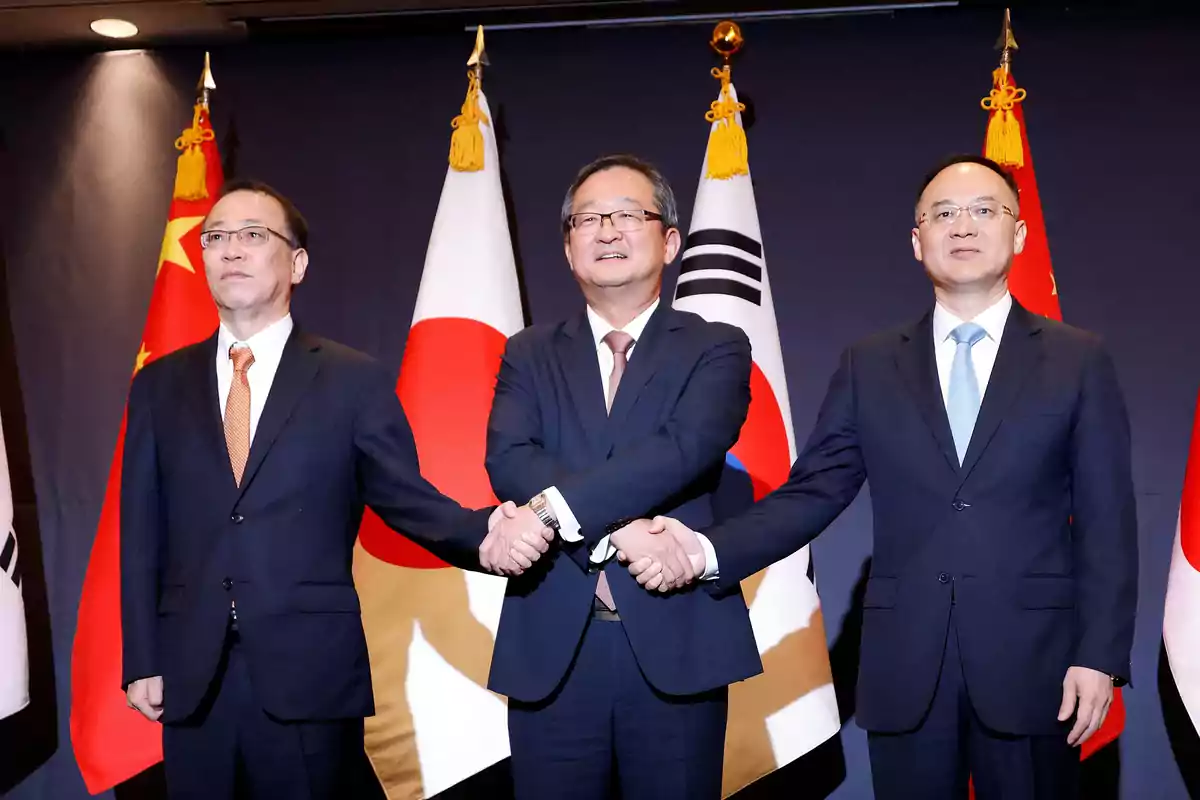
Japan, China, and Korea will meet in Tokyo to prevent nuclear war.
With an increasingly aggressive Chinese state toward Taiwan and the Philippines and great tension in Korea, talks will be held next Saturday
The foreign ministers of Japan, South Korea, and China will meet this Saturday in Tokyo to hold the first trilateral talks since 2023, amid growing regional tensions and international politics.
This meeting takes place in a context of political uncertainty in both South Korea and Japan, especially due to President Donald Trump's trade policies against China, and the growing rivalry between the United States and Beijing.
The countries allied with the United States will face challenges regarding regional and international cooperation, as well as the security dynamics in the Pacific region.
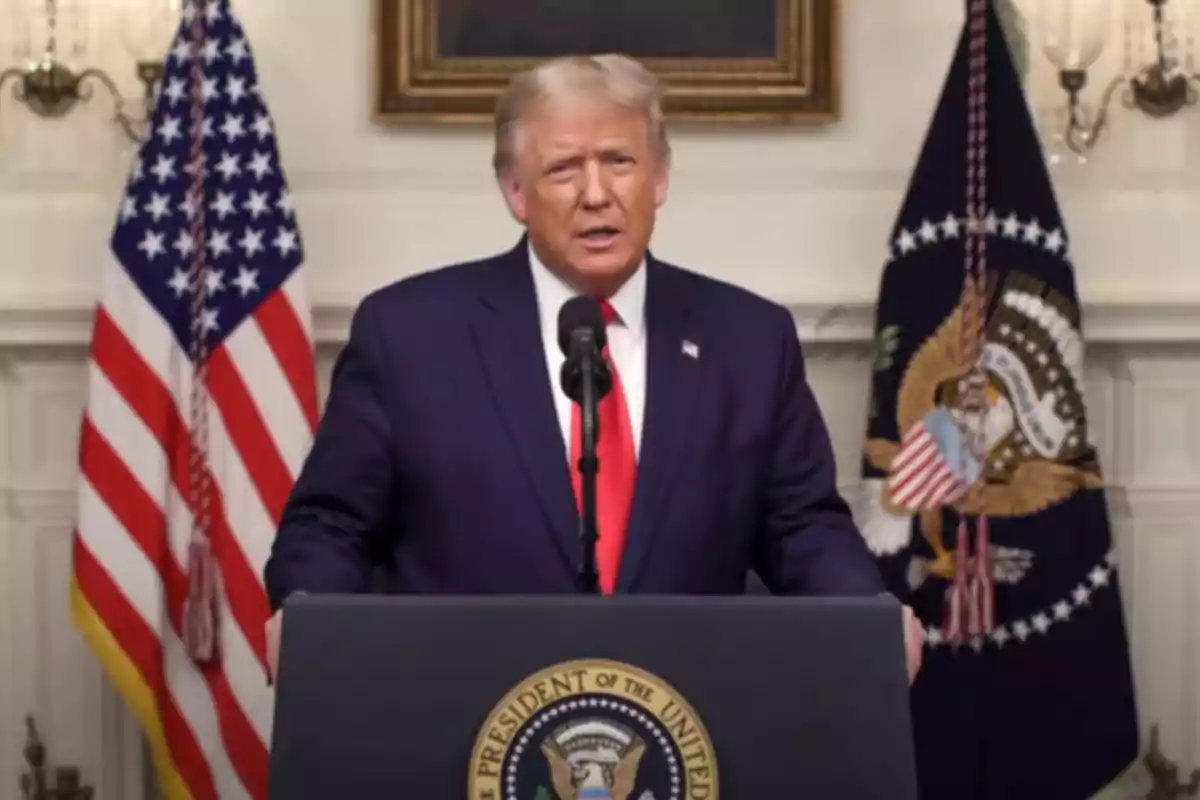
In particular, topics related to future cooperation will be discussed, although a joint statement is not expected after the talks.
Instead, an announcement related to "future-oriented cooperation" is anticipated, according to Japan's Foreign Minister Takeshi Iwaya, in a regular press conference.
The last trilateral meeting of the foreign ministers took place in Busan, South Korea, in November 2023. Additionally, the leaders of the three countries held a summit in May 2024, which reflected the growing interest in strengthening ties among these key East Asian countries.
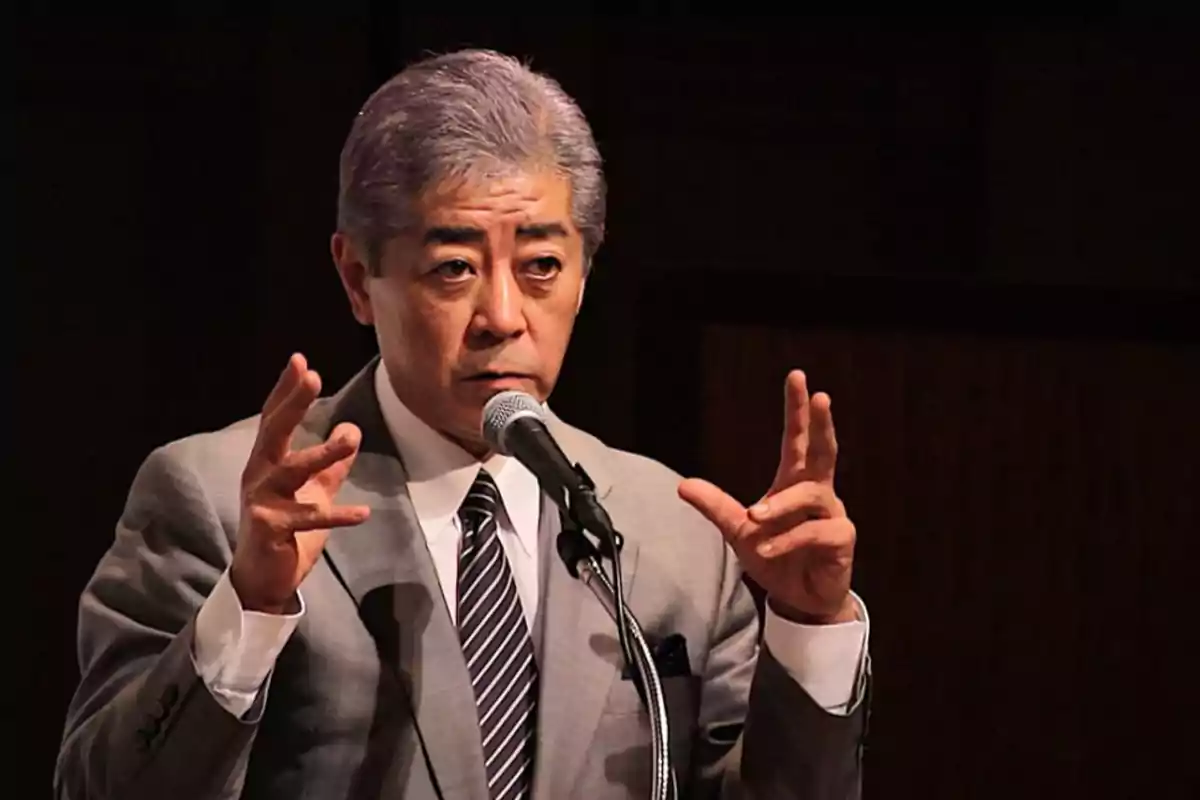
During Saturday's talks, a high-level economic dialogue between China and Japan will also take place, the first in six years, highlighting the importance of bilateral economic cooperation amid growing global economic rivalry.
In the framework of these talks, South Korea's Foreign Minister Cho Tae-yul will also hold bilateral meetings with Iwaya and Wang Yi, his counterparts from Japan and China, respectively.
This trilateral meeting is significant in a context of increasing tension in the region. Japan, for example, has decided to take more decisive measures regarding its security.
In this regard, Japan plans to deploy missiles with a range of 1,000 km on the island of Kyushu, capable of reaching deep areas of China and North Korea.
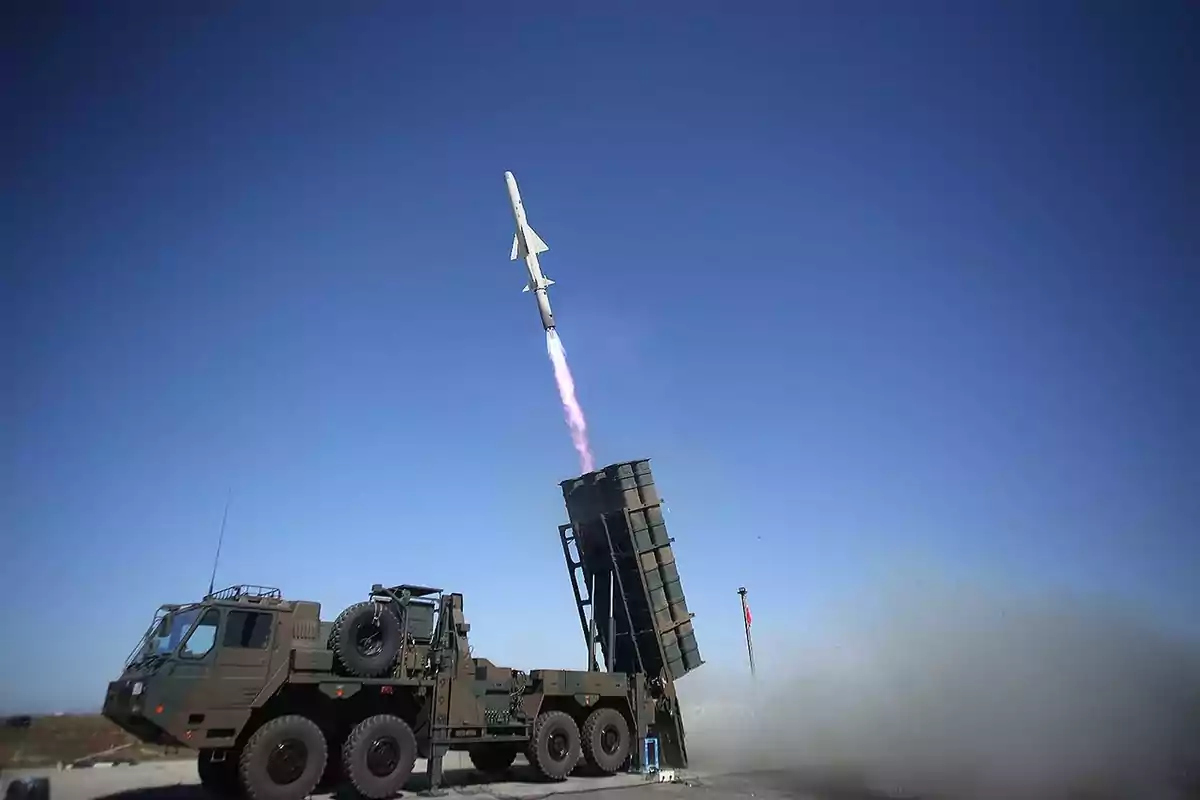
This move marks a dramatic shift for Japan, a nation traditionally linked to a pacifist constitution since the end of World War II, but now forced to adapt to a more challenging security environment due to regional threats.
Japan's decision to deploy these missiles has caused uncertainty among the local population, who fear their country may become a hotspot in Asia's geopolitical tensions.
Meanwhile, China and North Korea are closely watching this development, aware of the implications that this change in Japan's security posture could have in the region.
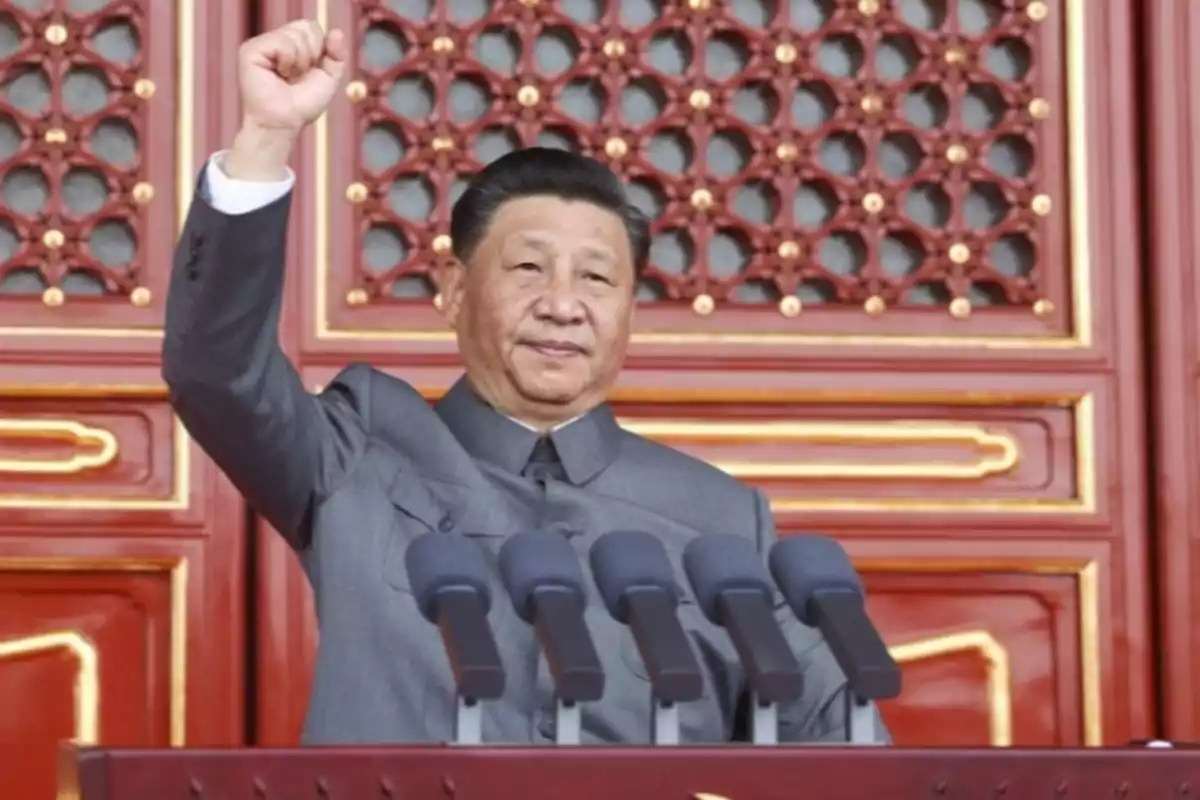
Besides security issues, another relevant aspect of the meeting will be the discussion on economic relations between Japan, China, and South Korea.
Although political and security tensions in the region have increased in recent years, the three countries remain key players in the global economy, and their trade and economic relations are essential to Asia's economic stability.
Therefore, the holding of the economic dialogue between China and Japan, after six years without high-level meetings, reflects the need to maintain economic cooperation even in times of growing political rivalry.
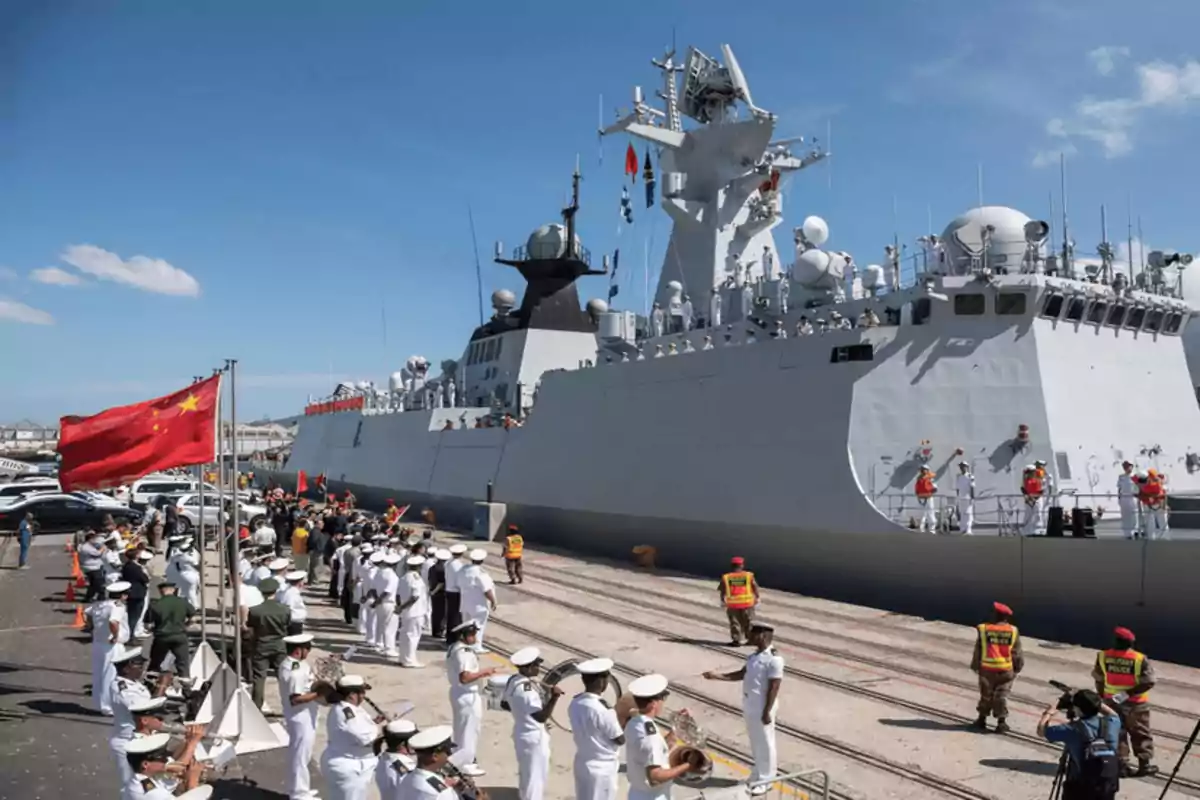
More posts: